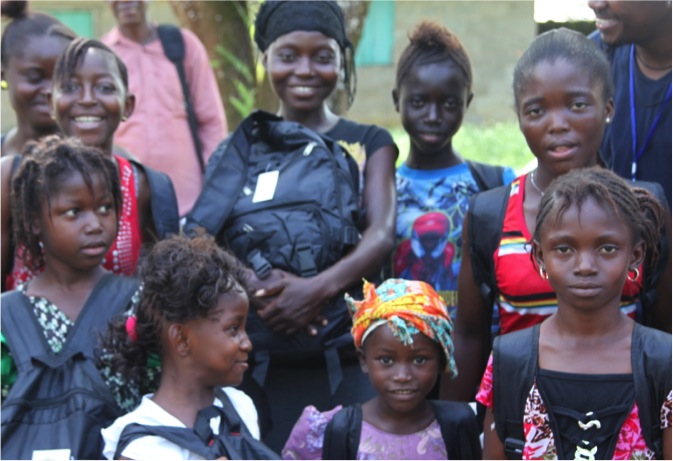Business Leaders Call for Action on Education in Ebola Emergency

The impact of Ebola stretches far beyond those who have contracted the disease. Nearly 5 million children are out of school due to Ebola-related school closures in Guinea, Liberia and Sierra Leone – many indefinitely. As in many emergencies, education has been one of the first casualties of the Ebola emergency.
In response, The Global Business Coalition for Education, in partnership with A World at School, released, Ebola Emergency: Restoring Education, Creating Safe Schools and Preventing Long-term Crisis, a report that offers an overview of the consequences of school shutdowns and recommendations for immediate action.
The GBC-Education report concludes that without the reopening of safe schools the most vulnerable and marginalized will be trapped in a worsening cycle of poverty with devastating long-term social, health and economic consequences for communities, countries and the region.
GBC-Education founding members Aliko Dangote, CEO, Dangote Group and Strive Masiyiwa, Founder and Chairman, Econet Wireless Group and other global leaders have added their voices to calls for urgent action to responsibly restore education in these three countries.
“I believe it is imperative that the business community takes a leadership role in the prioritization of education during humanitarian crises,” Dangote noted, adding, “Providing emergency education to children and their teachers and then responsibly reopening safe schools would help promote hope and keep pathways for rebuilding opportunity open for children, youth and their families.”
The 10 recommendations in the report include:
– Providing emergency education until schools are safely reopened through innovative and distance approaches such as radio, television, mobile and Internet technology
– Putting in place plans to responsibly reopen ‘safe schools’ to support efforts to fight Ebola and to protect children and their futures
– Ensuring investment in health programming and teacher training on Ebola
– Providing school feeding programmes and investments in water and sanitation for schools
– Creating plans to protect schools and education in future emergencies
Uncertainty about access to education can have a crippling impact on already vulnerable children, especially girls. Child marriage, early pregnancy, child labor and other forms of exploitation rise as families seek ways to survive. The longer the wait, the bigger the impact. Children out of school for more than a year are more than 50% less likely to ever return to the classroom.
Econet Wireless’ Masiyiwa urges, “We cannot let education become an additional casualty of the Ebola crisis. As we tackle the immediate public health crisis, we must also find ways to address the educational needs of the 5 million children affected by school closures in Guinea, Liberia and Sierra Leone. As a founding member of Global Business Coalition for Education, I urge others to get behind these recommendations to ensure the health crisis does not spiral into a lasting education crisis.”
The Global Business Coalition report calls for funding for education to be prioritized in the Ebola response and for Ministries of Health and Education to work together with the support of business, donors and other stakeholders towards the responsible reopening of safe schools.
Photo © Idris Kpange

